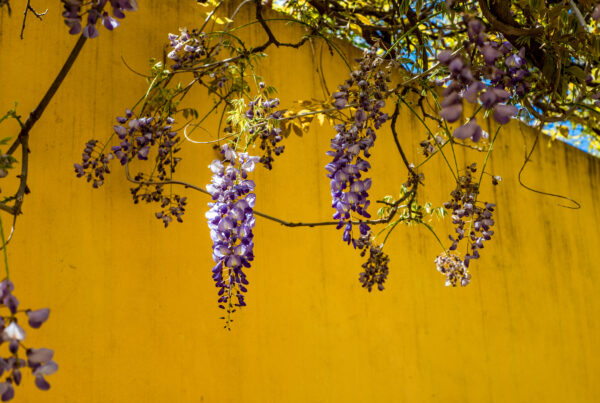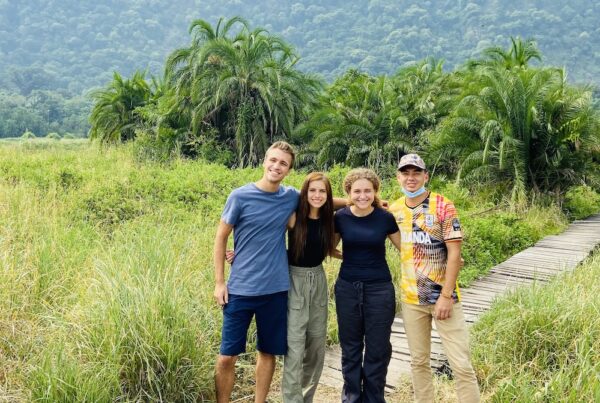The mountains shoot up sheer from all sides of the valley, bare and rugged at the tops and scattered with pine trees on the way down, then the bright greens and yellows of terraced gardens and fields in stark contrast to the brown of winter.
At the bottom, between me and my destination, winds a wide, stony river.
The nearest bridge is in a larger town some kilometers down the Himalayan valley. In its stead, a 3’x4’ metal basket hangs suspended by pulley from a steel cable stretched high from one river bank to the next.
Rishi and I climb in, seated on the edges, and pull ourselves through the air, hand over hand across the gap by way of a thick, hemp rope loosely attached to the cable on successive metal rings. The metal is biting cold, and the hemp is rough beneath our hands.
We make it to the other side of the river warm from the exertion, muscles burning, and start climbing up.
The village across the river isn’t far, but in these mountains nearly everything is straight up or down, and we immediately find ourselves climbing dogged switchbacks and ancient, ladder-like, stone steps.
Rishi makes this trek once a week, visiting the same family’s house to tell the gospel – lesson by lesson.
James and Lindsay Taber, Serge team leaders in this remote leg of the Himalayas, met Rishi several years ago in the larger capital city of this region, and, progressively, they have taken the young man under their wing. He now works with the ministry and lives in a room in the Taber’s old quarters.
“In these mountains there are hundreds of villages that have never heard the gospel,” Rishi says. “My goal is to reach every one of them.”
Already Rishi has reached a great many of the villages, on foot or by motorcycle. Nearly every day of the week he travels to different houses and villages to take families through the structured gospel study.
He has excellent English, a twinkle in his eye, and a fierce dedication to spreading the gospel.
Partway up the mountainside, we are welcomed in front of a small, stone house.
The family sets up plastic chairs and offers us hot, sweet, milk tea – a must for hospitality in this part of South Asia, and we sit and talk. A mountain woman and her family are scattered around us in chairs or on steps. Children play with a tiny puppy in the doorway.
Her life is hard, says the mountain woman. Her husband is schizophrenic and unable to work. She scrapes together what she can but has always struggled to feed herself and her children.
Every time Rishi quotes words of encouragement from scripture tears well up in her eyes. No one has ever told her things like this before, she tells Rishi. No one has ever given her words of hope.
An old grandmother, the matriarch of the house, sits off to the side on stone steps.
Her granite eyes focus on some point in the distance and she feigns disinterest for our whole visit. While the younger generations are proving receptive to the gospel of hope, the older generation, like this woman, are more resistant. They follow the old gods and the old ways.
There are scattered, secluded villages all through the mountains, James tells me. Individually they seem insignificant, but when you add the numbers up, you have hundreds of thousands of people who have never been reached by the gospel.
In the annals of history, kings and empires drew a line in the mountains that said – “Christianity may only come this far.” And for many years, it scarcely did.
The faith has only just begun to seep into the crevices and the peaks and take root – but there are so many that still have not heard.
That’s why partnerships with people like Rishi are so vital, James told me: brothers and sisters in faith who can connect and speak in ways that we Westerners simply cannot.
When gospel work happens the way it’s supposed to, its effects don’t stop out of earshot of the closest missionary.
When the gospel takes root in the hearts of a people who are in their own land and among their own people, it grows exponentially.
It grows dramatically through the testimony of miraculous healings, and it grows slowly through conversations over tea week after week of trudging up mountainsides.
——-
The name of the author and the people’s names in this article have been changed for privacy purposes.






